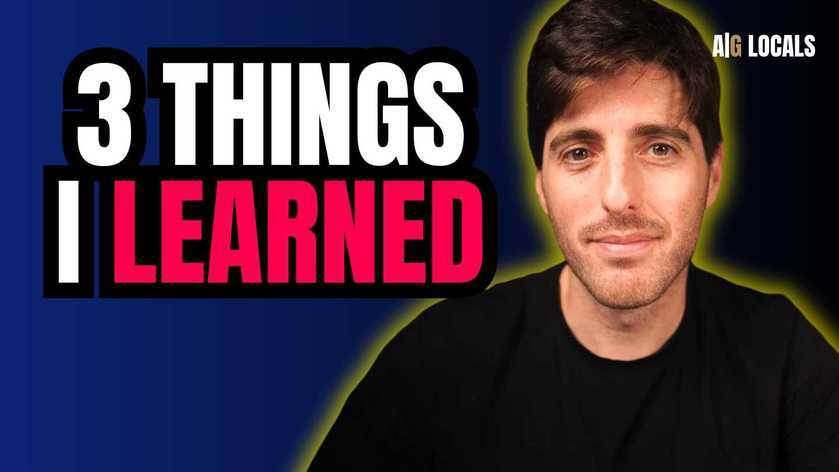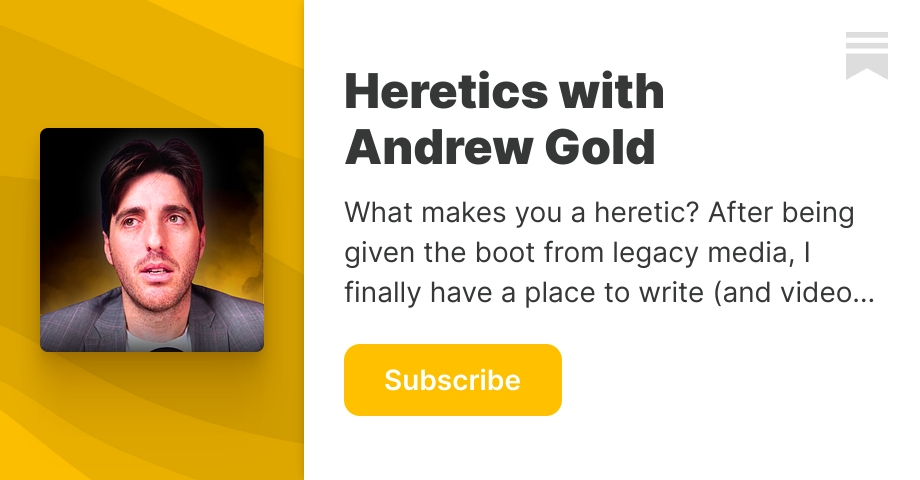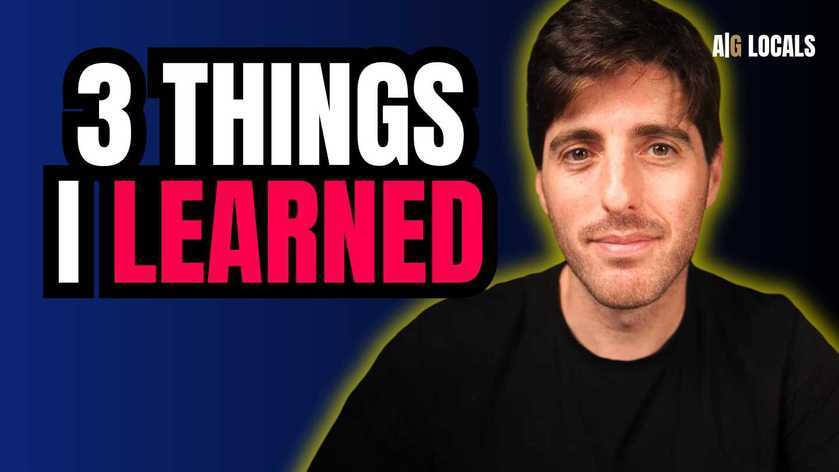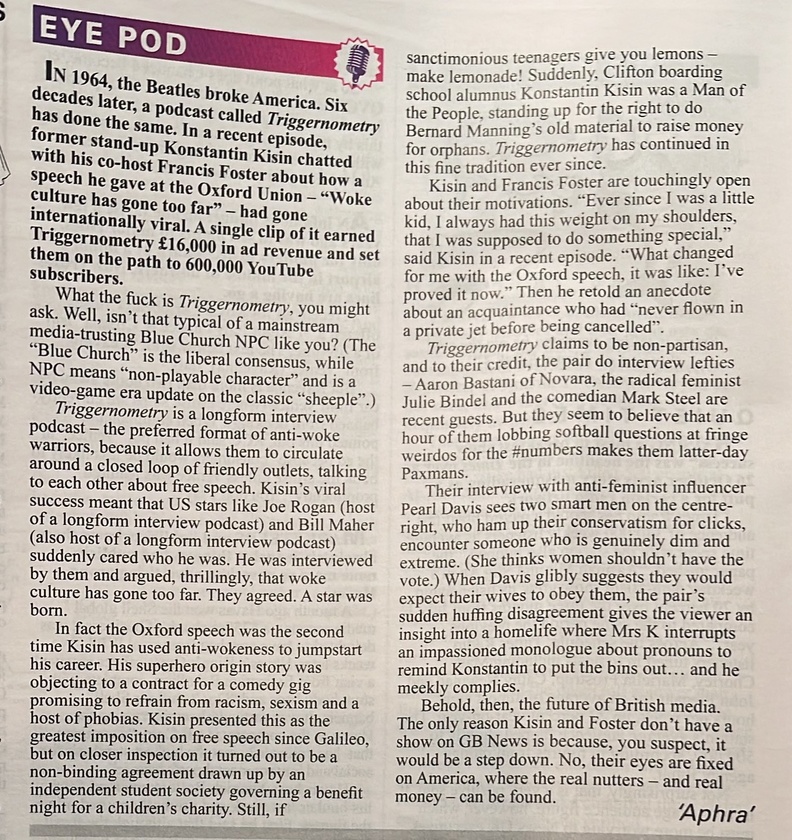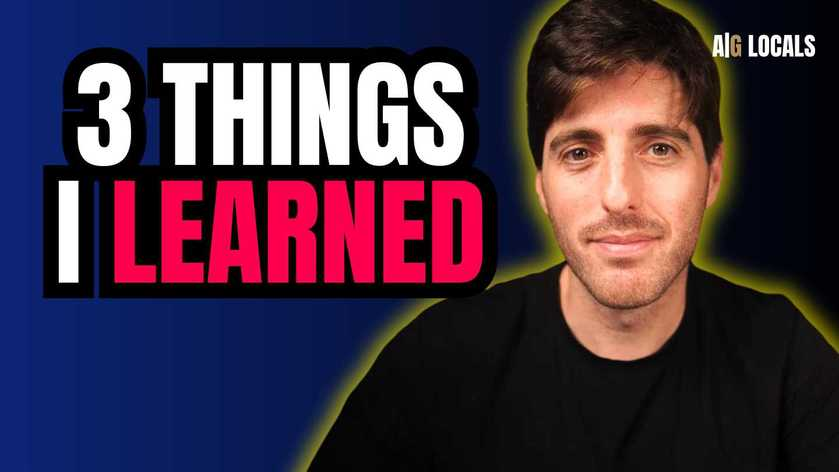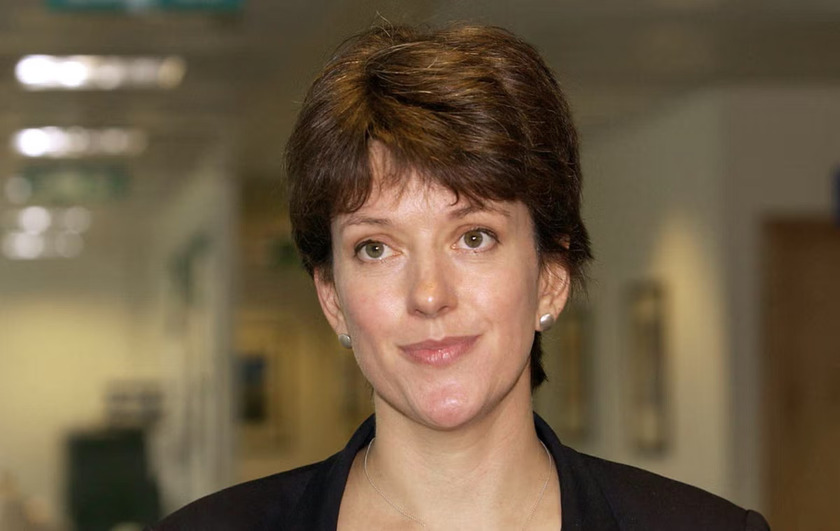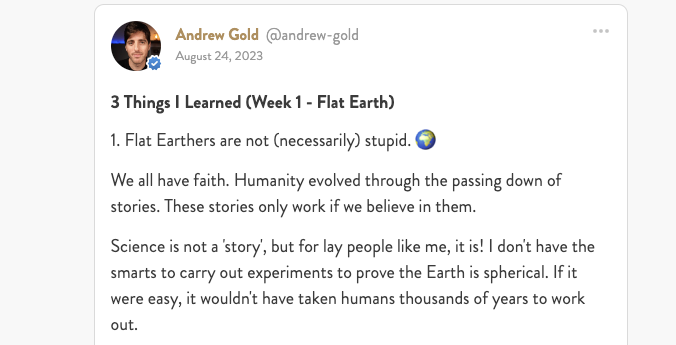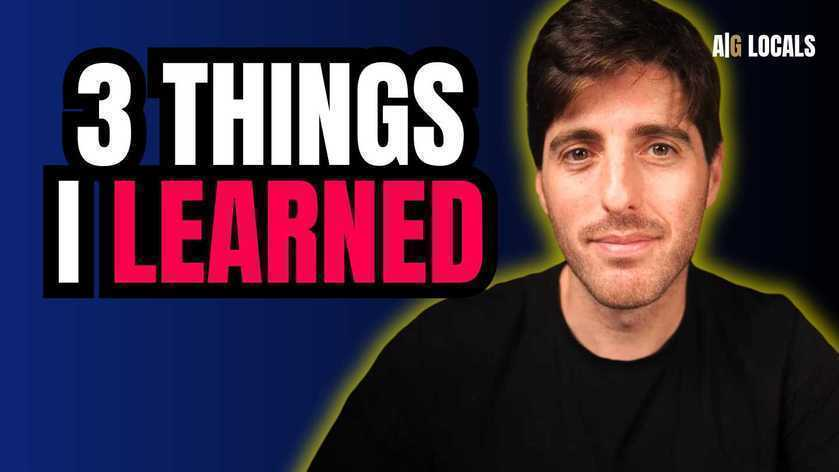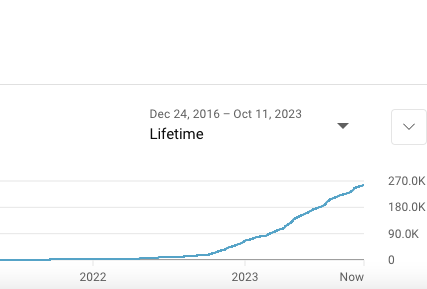1. Atheists are the most censorious demographic when compared to their religious counterparts
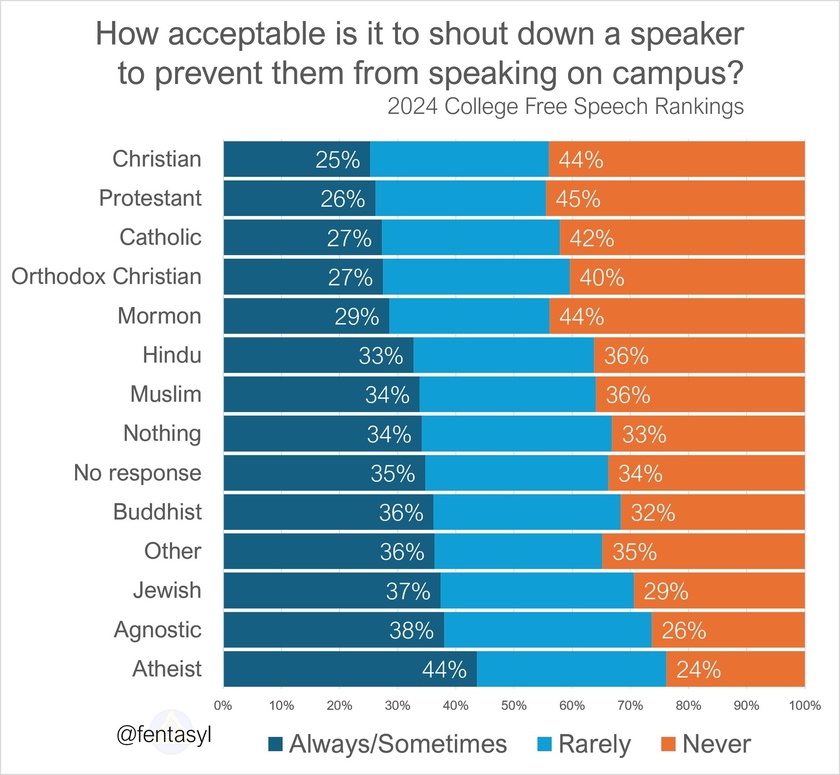
This is part of a worrying trend. As people move further from traditional religions, new spiritual and 'woo' science like New-Age Gwyneth Paltrow vagina candles are filling the...ehem...void. Atheism is supposed to be - at least in my opinion - about knowing that we don't know. It's showing humility in the face of the sublime cosmos. It's why I consider the term 'agnostic' redundant. No one can truly 'know' about the origins of the universe. So atheism has to allow for some level of not knowing.
The fact that atheists are significantly more likely to shut others down and prevent them from speaking shows they've moved away from the fundamental humanist principles of plurality of thought and freedom of opinion.

There are complex reasons for this move towards intolerance.
On the one hand, it appears that some 'progressive' atheists have become religiously certain that they possess the only knowledge that deserves a stage. But I also wonder if we can reverse-engineer this a little.
Christians, for example, are least likely to defend shouting someone down. Could it be that - today - they're the most likely to be shouted down? 30 years ago, might atheists have been the most shouted down, and therefore the most likely to believe in letting others speak? Do humans have to be attacked or censored just to be reminded of what it feels like? Is that the only way we'll empathise with and defend the rights and beliefs of others?
Whatever your beliefs, freedom of speech is most important when defending speech you find offensive and distasteful. It's easy to defend the speech that you agree with; but it's worthless if those same principles aren't applied to your enemies.
Top tip: Follow my friend Stephen Knight on Twitter, he's great on this.
2. Aliens Might Look Like Us
When I was younger, a belief in aliens was firmly placed in the woo box (alongside those aforementioned Paltrow candles). That's still the case for those who believe they were anally probed or lived on different planets. But now, I'd say that it's more 'woo' or crazy to suggest we are totally alone in an infinitely vast universe.
Thus began a rebranding of UFOs as UAPs (Unidentified Aerial Phenomena).
I can't say whether UAPs have visited us. My guest Dr. Avi Loeb is a Harvard Professor of Astronomy who does believe alien craft has landed here. True or not, it's fascinating that such an esteemed professor imagines it to be true. Meanwhile, we had this crazy announcement in Mexico, where they found these weird looking aliens in a cave. They're almost certainly fake.

But one thing struck me. Professor Brian Cox - of whom I'm an admirer - said that the reason these photos are likely fake is because the aliens are too humanoid. One commenter called Theo (@tprstly) responded:
Convergent Evolution, no? These are obviously fake but the idea that humanoid shapes could work out to be nature's most efficient and effective design to master and manipulate its environment and expand is not a bad one.
This led to a lot of angry comments beneath his. 'Humans aren't that special,' one replied. Theo responded that that is exactly his point. We could be just one of many human-like species around the universe. Not special.
We tend to over-correct, and lose nuance in doing so. In the 90s X-Files era, lots of humanoid aliens seemed to be knocking about (in the culture, not real life...probably). And in order to beckon in this new dawn of realistic modern aliens (so UAPs, not UFOs), scientists and commentators made it clear that aliens wouldn't look anything like us. They'll just be a weird thing we can't imagine - like a steamy Futurama big brain thing. We were told it was arrogant of us to presume that aliens would look at all like us.
But I'd say that - at this moment - humanoid aliens are the most likely scenario. The truth is we have no idea what aliens would look like. All we know is - as Richard Dawkins recently told me - they'd likely be Darwinian. And they'd probably use and be made up of some of the same chemicals and elements - such as water - as us.
We know too that certain human features have evolved separately. The human eye and the octopus eye are similar, yet evolved in completely different chains. It is possible therefore that aliens would have similar eyes.
Perhaps crab-like creatures evolved large brains, and thumbs to make tools. Perhaps, thumbs and big heads aren't necessary. Perhaps, as is now popular opinion, aliens would look nothing like anything we can imagine.
But for all we know, the humanoid shape and form is the only way animals can form the kind of collective intelligence for building tools and technology. This wouldn't make us special; it'd make us common!

3. Anti-Scientology Cult
As the owner of a YouTube channel that exposes cult dynamics, my biggest concern is becoming too cult-like. It's very hard to bring a community together to criticise a cult without being...a cult. In recent days, I've seen this creep in a little bit in the way that Danny Masterson's rape conviction and sentencing has been covered.
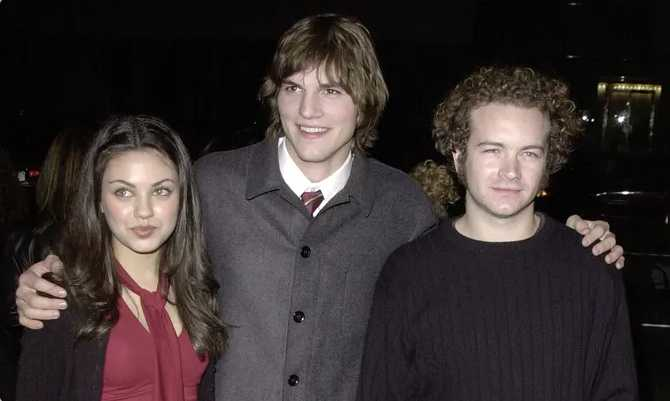
I have heavily criticised his close friends Ashton Kutcher and Mila Kunis for their statements intended to influence the judge in Masterson's sentencing to be more lenient. I'll continue to do so, because what they did flies in the face of Kutcher's apparent activism for victims of sexual abuse. His statement was tone-deaf and clearly written by Scientology, which is a whole other point.
However, there have been one or two examples - that I won't name because I don't want to add to the shaming and pile-ons - of journalists asking questions about the evidence on Masterson. My friend Aaron Smith-Levin has addressed these concerns by listing the wealth of evidence that was ironically kept by Scientology auditors! So we know that there is ample evidence.
The journalists are wrong, and crucially, they risk further alienating victims who have been gas-lit for 20 years. However, many have 'flagged' the accounts of these journalists to social media to get their accounts taken down.
We must resist what is a very human impulse to silence those who challenge even our most deeply held and identity-related beliefs and experiences. More than anything, this is not the way to convince those journalists - and their followers - that we are not in a cult ourselves. It makes us seem irrational, and detracts from the evidence and the actual horrific experiences of the victims.
Instead, calmly communicate to these misguided individuals that you can understand why they'd question this - journalists must question narratives (remember Depp vs Heard - it took brave independent journalists to ask difficult questions about Heard that could have got them cancelled. It took a long time to turn the tide and for people to realise that Heard's accounts were unreliable).
Then, take the time to explain to these journalists where the evidence comes from.
Scientology shuts down its adversaries. We don't.
---
Was this helpful and interesting? Let me know below, and tell me what kinds of topics you'd like next time, or other features you'd like to see on Locals (time-permitting!).
